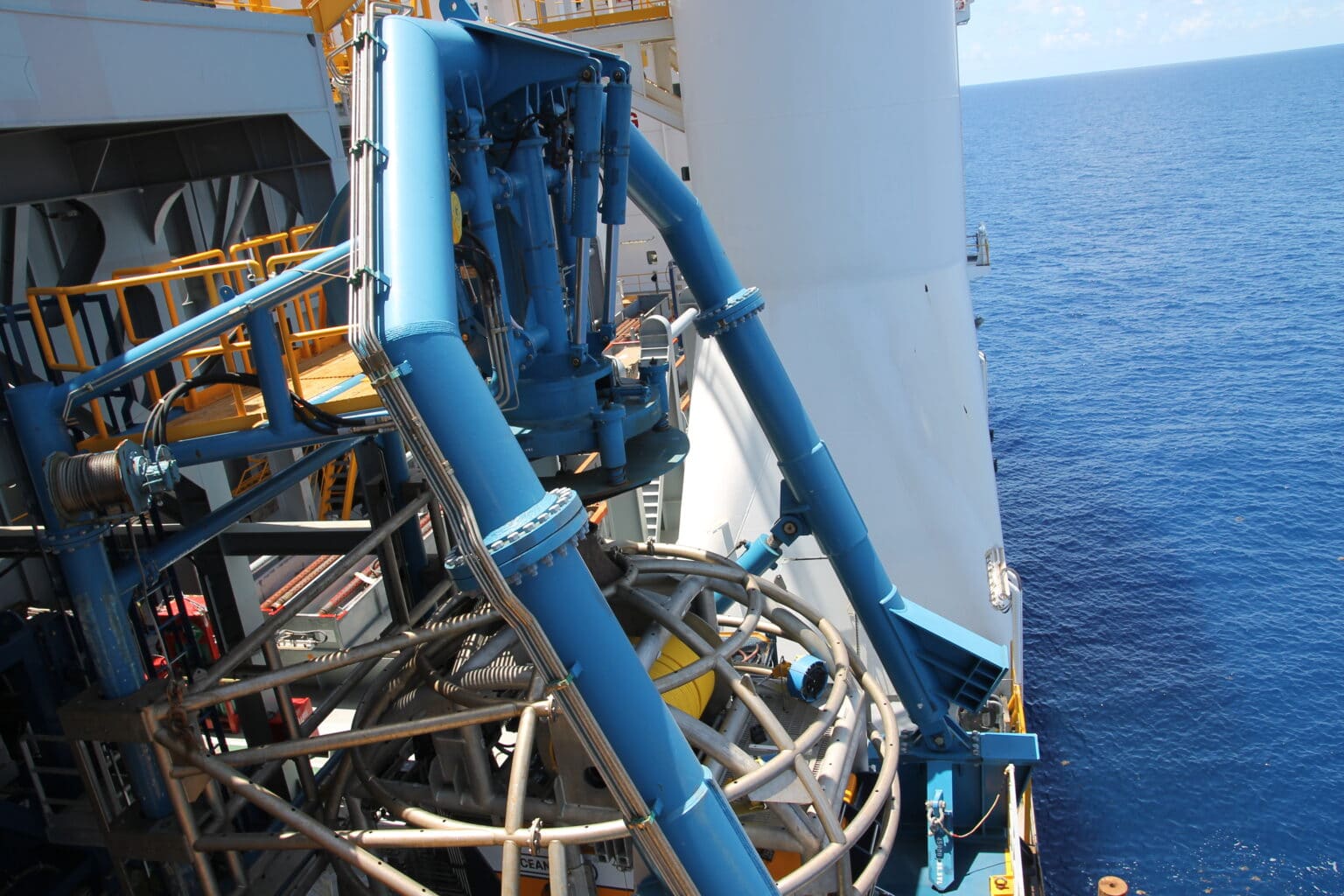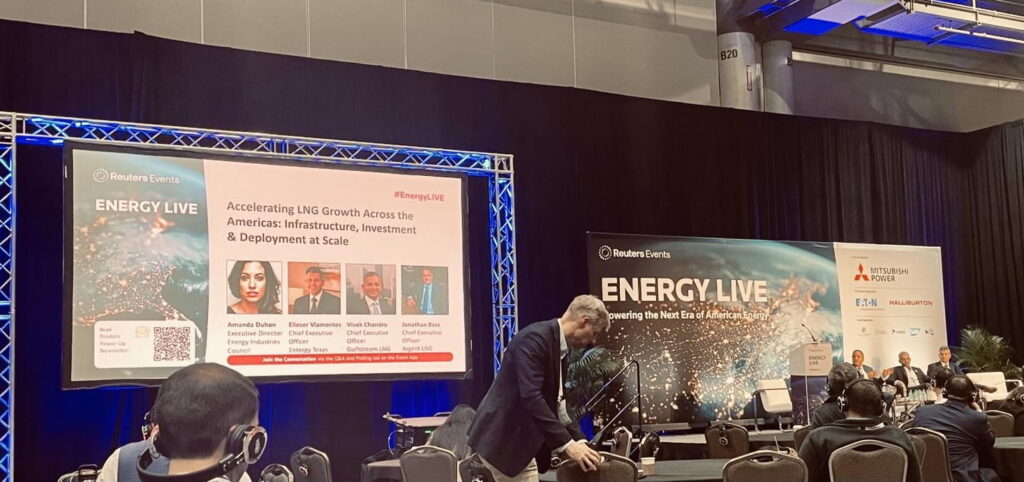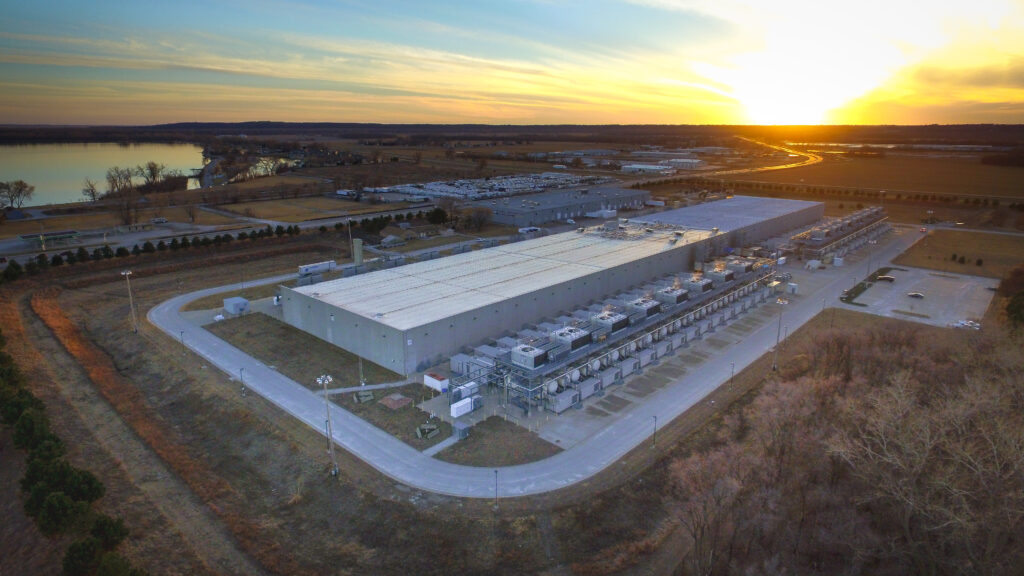Video footage obtained by DeSmog shows an offshore oil drilling incident in which heavy equipment fell from a drillship onto an oil and gas wellhead deep below the ocean’s surface.
The three short clips offer those on land an unusual window into the world of offshore drilling accidents. Two experts who reviewed the footage for DeSmog said that the videos appear to show a blowout preventer (BOP) — a kind of heavy oilfield equipment that is used to control or seal the flow of oil and gas from wells — falling suddenly during a relatively routine procedure. An additional video appears to show the resulting underwater damage filmed from a remotely operated vehicle. Text displayed in one clip reads, in part, “Monitoring BOP Unlatch” and “Pontus,” and a second video of the incident bears the date November 20, 2021.
In December, the oil and gas social networking site Rig Lynx reported that the Deepwater Pontus, an ultra-deepwater drillship that can drill as deep as 40,000 feet, had lost a BOP while completing a well in the Gulf of Mexico on that date.
As of press time, Transocean, the owner of the Deepwater Pontus, had not responded to multiple requests from DeSmog for comment and had not confirmed that the videos were indeed of the Pontus’ November accident.
The Pontus is currently contracted to Shell, which provided a statement in response to questions about the Rig Lynx report that confirmed the drillship had been involved in “an operational incident” in the Gulf of Mexico. “The incident occurred at approximately 2 a.m. on November 20 while the drillship was preparing to move off a well located in the Mississippi Canyon,” a Shell spokesperson told DeSmog. “The wellhead remained secure, no flow was detected, and there were no injuries.”
Oil spill experts said the incident highlights the risks even routine operations can pose offshore.
“BOPs have been fitted on wellheads thousands of times in the Gulf and elsewhere, most without incident,” said Rick Steiner, a marine conservationist and former professor at the University of Alaska, whose background includes advising on the response to the Deepwater Horizon, the Exxon Valdez, and many other oil spills worldwide. “But the Shell/Transocean mishap shows that simple failures can cause serious incidents, in the blink of an eye.”
Steiner called for an in-depth investigation by the Bureau of Safety and Environmental Enforcement (BSEE), which regulates the offshore oil industry.
“While it is reported that the riser broke above the flex joint, BSEE must fully investigate this mishap and come to its own credible conclusion,” Steiner added, referring to details reported by Rig Lynx. “What exactly caused the riser to break?”
As of press time, BSEE had not responded to questions about the video footage or the incident involving the Pontus. The agency’s published district investigation reports include over 40 offshore oil drilling incidents in 2021, though incident investigations can take months to complete and the most recent incident investigation report available on BSEE’s website is dated September 26, 2021.
In July, the Pontus was involved in a second incident, BSEE records show, also in the Gulf of Mexico. The 781-foot ship had experienced a total loss of power and, while adrift, was forced to activate its emergency disconnect system to detach the ship from the well below, a BSEE investigation found. The Pontus’ lower marine riser package, equipment that separates from the blowout preventer during an emergency disconnect, “began to drag on the seafloor due to uneven seafloor contour,” BSEE wrote. BSEE estimated the damage from that incident at $2,150,000.
“Shell Offshore Inc (Shell) can also confirm that the same drillship, Transocean’s Deepwater Pontus, briefly lost power and propulsion on Saturday, July 17 at around 10 a.m. in the southwest Gulf of Mexico,” the company said in an email to DeSmog. “Power and propulsion were restored, and the Pontus was stabilized. The Pontus was conducting operations on a well in the Silvertip prospect located in the Alaminos Canyon [a deepwater canyon in the northwestern Gulf of Mexico].”
The Pontus was also involved in a third incident in 2021, BSEE records show. Around 4 a.m. on February 27, 2021, equipment mounted on a crane fell 72 feet to the transporter deck below, with BSEE citing “extensive corrosion” as a cause and estimating $8,000 in property damage.
Transocean’s Pontus, which is flagged in the Marshall Islands, entered a 10-year contract with Shell in 2017. At the time, the Pontus was newly built and its day rate was $519,000, according to trade publication Offshore Energy; as of December 2021, it had dropped to $473,000 the publication reported.
News of the incident comes as the Biden administration is under growing pressure to stop issuing new oil and gas leases on public lands and offshore because of the risks involved — specifically those related to the climate crisis.
In January, a federal judge invalidated the November auction of 80 million acres in the Gulf, the largest offering in U.S. history, which had resulted in bids from drillers for 1.7 million acres.
“We have documented serious deficiencies in the federal oil and gas program,” Melissa Schwartz, a spokesperson for the Department of the Interior, told the New York Times in the wake of that court ruling. “Especially in the face of the climate crisis, we need to take the time to make significant and long overdue programmatic reforms.”
“These leases were a climate disaster waiting to happen,” Rep. Raúl Grijalva (D-AZ), chair of the House natural resources committee, told The Guardian in response to the January court ruling. “This decision is a welcome chance to reset our federal fossil fuel leasing policies and limit carbon emissions while there is still time to prevent the most disastrous outcomes of climate change.”
BSEE data shows that as of February 1, 2021, the Pontus was still located in the King prospect of the Mississippi Canyon in the Gulf of Mexico, working at a depth of roughly 3,300 feet.
Over 30 other drillships are listed in BSEE’s current deepwater activity report, including a different Transocean ultra-deepwater ship operated by Shell, the Deepwater Poseidon, listed as drilling in water nearly three times as deep.
“This incident reminds us all,” said Steiner, “that we are just one sequence of simple mistakes away from another Deepwater Horizon disaster.”
Subscribe to our newsletter
Stay up to date with DeSmog news and alerts






